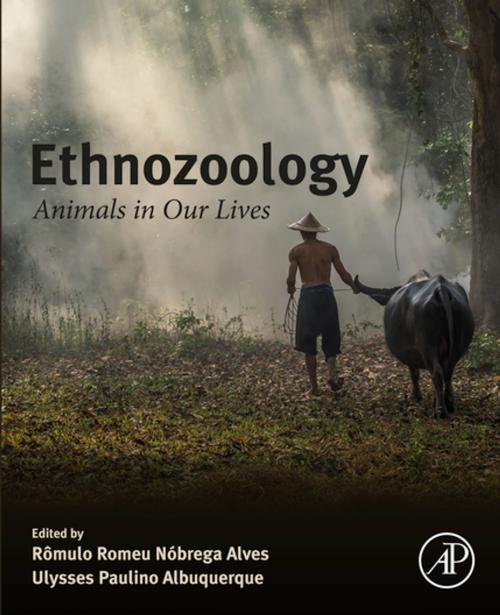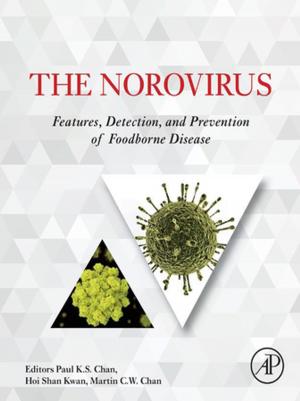Ethnozoology
Animals in Our Lives
Nonfiction, Science & Nature, Science, Biological Sciences, Ecology, Evolution| Author: | ISBN: | 9780128099148 | |
| Publisher: | Elsevier Science | Publication: | October 23, 2017 |
| Imprint: | Academic Press | Language: | English |
| Author: | |
| ISBN: | 9780128099148 |
| Publisher: | Elsevier Science |
| Publication: | October 23, 2017 |
| Imprint: | Academic Press |
| Language: | English |
Ethnozoology: Animals In Our Lives represents the first book about this discipline, providing a discussion on key themes on human-animal interactions and their implications, along with recent major advances in research.
Humans share the world with a bewildering variety of other animals, and have interacted with them in different ways. This variety of interactions (both past and present) is investigated through ethnozoology, which is a hybrid discipline structured with elements from both the natural and social sciences, as it seeks to understand how humans have perceived and interacted with faunal resources throughout history.
In a broader context, ethnozoology, and its companion discipline, ethnobotany, form part of the larger body of the science of ethnobiology. In recent years, the importance of ethnozoological/ethnobiological studies has increasingly been recognized, unsurprisingly given the strong human influence on biodiversity.
From the perspective of ethnozoology, the book addresses all aspects of human connection, animals and health, from its use in traditional medicine, to bioprospecting derivatives of fauna for pharmaceuticals, with expert contributions from leading researchers in the field.
- Draws on editors’ and contributors’ extensive research, experience and studies covering ethnozoology and ethnobiology
- Covers all aspects of human-animal interaction through the lens of this emerging discipline, with coverage of both domestic and wild animal topics
- Presents topics of great interest to a variety of researchers including those in wildlife/conservation (biologists, ecologists, conservationists) and domestic-related disciplines (psychologists, sociologists)
Ethnozoology: Animals In Our Lives represents the first book about this discipline, providing a discussion on key themes on human-animal interactions and their implications, along with recent major advances in research.
Humans share the world with a bewildering variety of other animals, and have interacted with them in different ways. This variety of interactions (both past and present) is investigated through ethnozoology, which is a hybrid discipline structured with elements from both the natural and social sciences, as it seeks to understand how humans have perceived and interacted with faunal resources throughout history.
In a broader context, ethnozoology, and its companion discipline, ethnobotany, form part of the larger body of the science of ethnobiology. In recent years, the importance of ethnozoological/ethnobiological studies has increasingly been recognized, unsurprisingly given the strong human influence on biodiversity.
From the perspective of ethnozoology, the book addresses all aspects of human connection, animals and health, from its use in traditional medicine, to bioprospecting derivatives of fauna for pharmaceuticals, with expert contributions from leading researchers in the field.
- Draws on editors’ and contributors’ extensive research, experience and studies covering ethnozoology and ethnobiology
- Covers all aspects of human-animal interaction through the lens of this emerging discipline, with coverage of both domestic and wild animal topics
- Presents topics of great interest to a variety of researchers including those in wildlife/conservation (biologists, ecologists, conservationists) and domestic-related disciplines (psychologists, sociologists)















